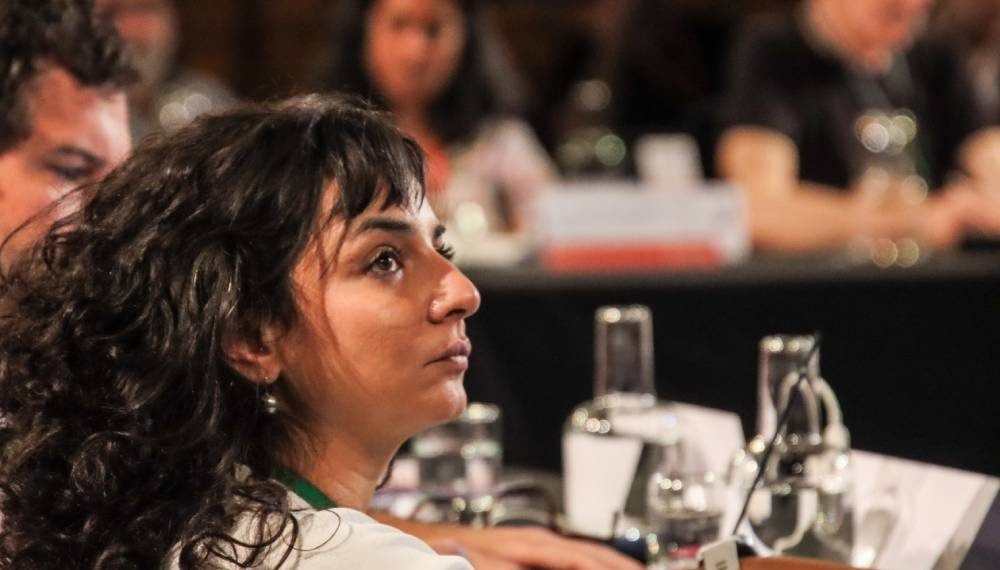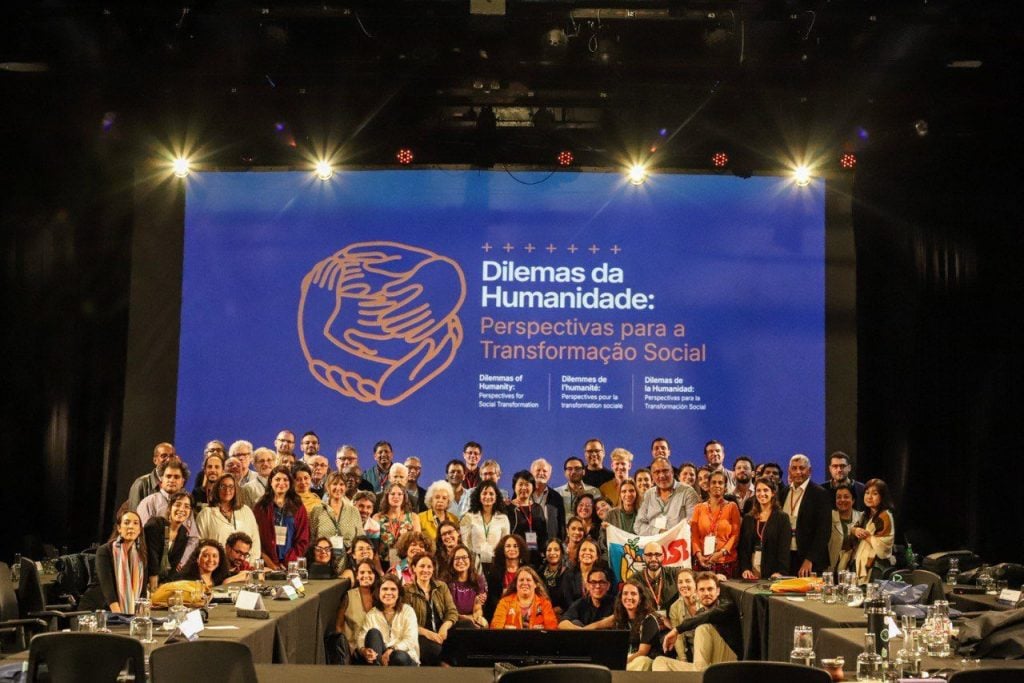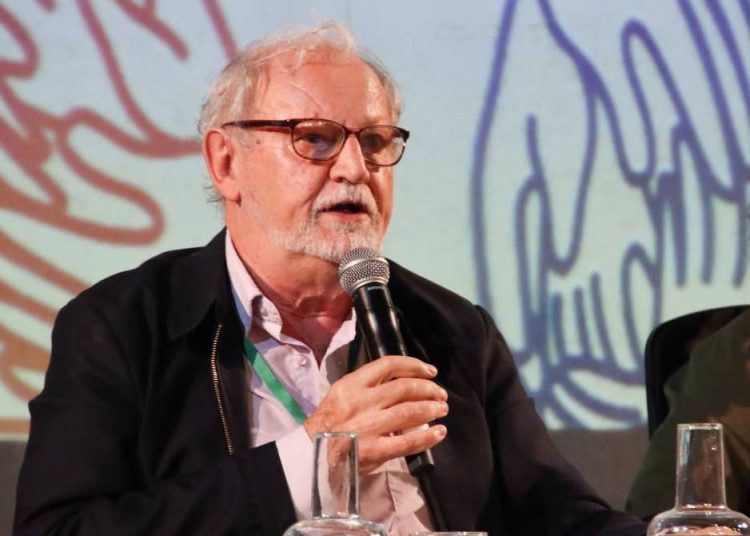For four days, São Paulo brought together the top progressive thinkers to debate practical proposals for overcoming the crisis caused by liberalism and imperialism. Focusing on the economy subordinated to improving people’s lives, the essence of the Dilemmas of Humanity conference was defined by João Pedro Stedile.
“Economy is too important to be discussed only by economists,” said the leader of the Landless Rural Workers’ Movement (MST, in Portuguese), himself an economist, as well as a Marxist and a Catholic.
The meeting took place mostly at Sesc Pompeia – a “victory of the working class”, Stedile explained – where more than 70 intellectuals, political and popular leaders contributed to the formulation of ideas for the left to face the current challenges. The fact that the fourth edition of Dilemmas of Humanity is taking place amid the announcement of tariffs by US President Donald Trump increased the sense of urgency for the conference.
“Even though we hadn’t planned, this meeting took place in an important week, in which imperialism has used its traditional instruments of control against the Global South, against the whole world,” said economist Juliane Furno at the close of the event.

“We are in the heat of the moment, and the extreme right is accelerating the [coming of a] new world, forcing elaborations that will serve as ammunition for the new reality.”
Ideas, ideas, ideas…
The opening ceremony on Monday (7) took place at the Pontifical Catholic University (PUC, in Portuguese) in the city of São Paulo. Claudia de la Cruz, candidate for President of the United States in the 2024 bid race and co-founder of The People’s Forum, an organization focused on the working class and marginalized communities, and Indian writer and historian Vijay Prashad presented their diagnoses to prove that the liberalism that has dominated the global system in recent decades is incapable of offering a future free of the crises it itself has created.
On Tuesday (8), Jeffrey Sachs, who won the Nobel Prize in economics for his work to end poverty, said that Brazil and Latin America should seek “growth based on science, technology and human skills.” Through video, Sachs emphasized the need to overcome the economic model based on commodities exports. On the same day, Moroccan economist Najib Akesbi advocated a gradual but radical break with the rules of the international financial system. “Reformist solutions from the past are insufficient for an economy that favors the Global South,” he said.
On Wednesday (9), the debate focused on how Global South countries can escape the role of mere suppliers of raw materials to developed economies. What’s more, Indian economist Surajit Mazumdar talked about how to think of industrial policy as a means to achieve social improvements.
Earlier, Brazil’s Minister for Management and Innovation in Public Services, Esther Dweck, acknowledged that the commodities boom in the early 2000s increased production, but also “our difficulty in breaking out of this cycle.” “At the time, we basically had state-owned companies and multinationals. What follows [under the Temer government] is that state-owned companies are ‘sold’ and this process continues to this day. In Brazil, companies are bought to close down, not to industrialize,” she says. The minister, however, points out that “the pandemic has played a role in the risks of low productive autonomy.”
The Dilemmas of Humanity was also the subject of O Estrangeiro, Brasil de Fato’s podcast on international politics. In the afternoon, the president of the Brazilian Institute of Geography and Statistics (IBGE, in Portuguese), Marcio Pochmann, spoke about how to protect the wealth of developing countries and stressed that it is essential to “have hope and avoid the future that is drawn for us by the Global North.”
On Thursday (10), Russian economist Yaroslav Lisovolik explained why the Global South should bet on regionalism against the crises produced by developed countries. “Blocs like Mercosur have more capacity and interest in helping their members than institutions like the IMF,” he said.
Speeding up historical time
At the end of the meeting, Stedile said that finding ways to stop being held hostage by the US currency is key to the emancipation of the South.
“Imperialism uses the US dollar as a protection mechanism to continue exploiting workers. We have to fight hard because it is more dangerous than the atomic bomb,” said Stedile, who also defended “nature and food sovereignty,” and added that “Without agroecology, there will be no fight against climate change.”
“Our central objective is to overcome social inequality – and Big Tech won’t solve that. It will actually deepen the problem.”
Juliane Furno warned that one of the current contradictions is that the extreme right “is defeating free trade, the World Trade Organization (WTO), [and] the post-World War II world,” which was traditionally fought by the left.
“A new world is possible. However, at the moment there is destruction. Tariffs may isolate the US, speed up historical time and unite the Global South.”
“We must take the opportunity to strengthen integration with more radicalized alternatives, taking countries off the periphery,” he added.





